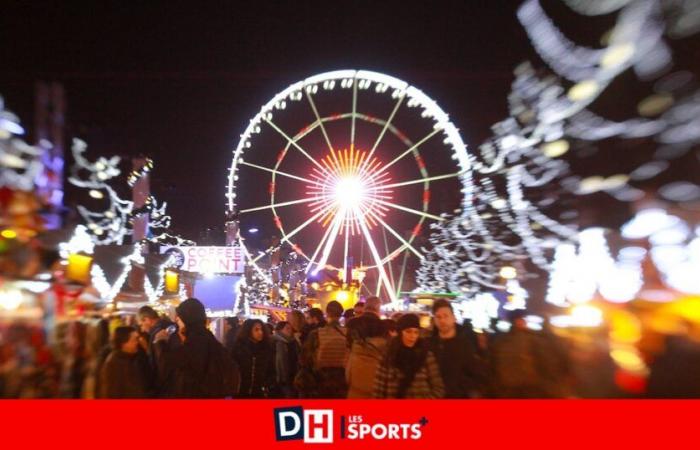All for a public investment of just over 500,000 euros – a structural grant from the City of Brussels – as well as the investment of the entire Brussels Major Event (BME) team, which organizes the event. That’s almost 50 full-time people, plus between 70 and 80 seasonal workers during the 5 weeks of the event. “Since the end of Covid, all costs have increased by between 20 and 30%. This requires great budgetary rigor but we are in balance“, explains the director of Brussels Major Event (BME), Olivier Mees. “We benefit from the financial and logistical resources of the City of Brussels and we have our own revenue.” The Brussels Region does not put in a cent. And its armed tourist arm Visit. Brussels promotes it very little on its networks or on its website.
The Var, guest of honor at the 2024 Winter Fun
The event costs three million euros. And brings in just as much. The heaviest cost concerns the security of the event, which lasts five weeks without interruption: around 400,000 euros. “Our turnover comes from the rental of the chalets – which brings in a little over a million euros –, entrances to the ice rink, sponsors and a little corporate“, explains Olivier Mees.
“A brand known throughout the world”
The 240 traders at the Brussels Christmas market do not pay the same price for their chalet. An artisan will rent his chalet for 2,500 euros, a trader who sells food will pay more, and someone who also sells alcohol will pay even more. This can go up to 10,000, or even 12,000 euros if it is a very large concession like we can see on the Place de la Bourse for example. The waiting list nevertheless remains long, proof that the event is profitable. If no trader has ever wanted to open their account book, estimates predict a turnover ranging from 25,000 to 75,000 euros for a trader selling artisanal products. This can exceed 150,000 euros for a large chalet selling food and alcohol.
Take part in our Winter Wonders competition and win hotel nights in the heart of the capital
Today, Plaisirs d’Hiver is in the top 5 end-of-year tourist events in Europe. The event regularly wins international awards – CNN has just voted it the most original market in the world – and attracts more and more foreign tourists even if its biggest clientele remains Belgian. Of the four million visitors last year, one million came from abroad. Especially from neighboring countries but also and increasingly from southern Europe, Spain first and foremost. “Originally, we wanted to break the idea that Brussels is only an administrative city, that of European institutions.”recalls the mayor of the City of Brussels Philippe Close (PS), who confirms that in terms of public money invested, it is indeed the most profitable public event in Belgium. “Before, people visited Paris then Amsterdam, without going through Brussels. Today they are stopping in Brussels. Then sometimes go to Bruges. Plaisirs d’Hiver has become a brand known and recognized throughout the world. For tourists, it’s much more than a Christmas market.”
For the secretary general of the Brussels Hotels Association (BHA), Rodolphe Van Weyenbergh, this event is awaited by the sector “because the month of December attracts fewer business customers. Here, we have a leisure, family and young customer base. In addition, the appeal of Plaisirs d’Hiver is international.” It is especially on weekends that Brussels hotels, especially those closest to the Grand-Place, are full, with occupancy rates exceeding 80%. “Plaisirs d’Hiver clearly puts Brussels on the map for end-of-year city trips.”
Stronger than Tomorrowland or the Formula 1 Grand Prix
Winter Wonders is obviously not the only event to fill Brussels hotel rooms. “The Flower Carpet attracts many foreign tourists in August, but it only lasts one weekend and every other year.”continues Rodolphe Van Weyenbergh. “Some big concerts, like ColdPlay which had filled the Heysel four times in August 2022 or Tomorrowland, organized in July, have a very positive impact on hotel occupancy – around 60,000 nights – even if it is difficult to compare these events in terms of economic impact because the audiences are very different. In addition, Plaisirs d’Hiver is a free event.”
Tomorrowland, in fact, also generates enormous economic benefits: 281 million euros in 2023 for a turnover of 129 million euros and a profit of 8.4 million euros. But the event, which still employs 1,200 Belgian suppliers, is private. The Spa Formula 1 Grand Prix also generates an influx of tourists into the capital. It generates 230 million in economic benefits across the country (tax revenue included) but costs between 3 and 8 million euros in subsidies, through Walloon taxes.






